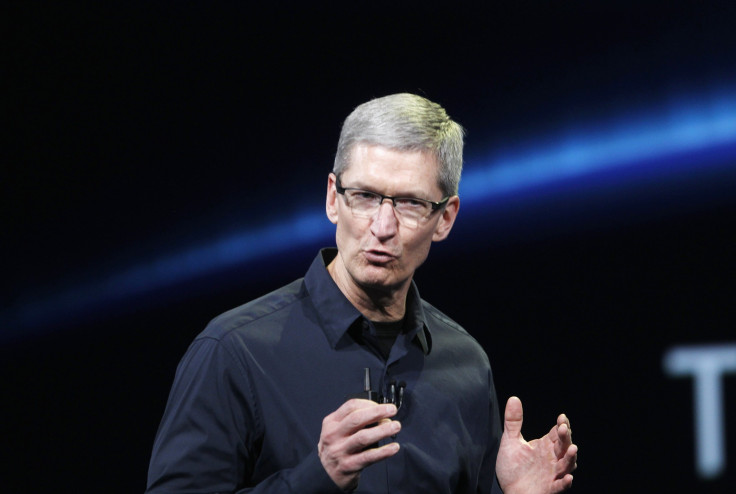Apple Shareholders' Meeting: Will CEO Tim Cook Address Allocation Plans For $137 Billion Cash Pile? [PHOTO]

Apple Inc. (Nasdaq: AAPL) CEO Tim Cook will appear Wednesday in Cupertino, Calif., at an annual shareholders' meeting, where he is expected to speak on, among other things, Apple's $137 billion cash stockpile and if, when and how much of the capital may be returned to shareholders.
Cook has been the subject of much criticism as of late, mainly for dodging the popular topic of money accumulated by the world’s most valuable company. Investors have said they expect to see a bigger piece of the pie, since the company has grown amid surging sales of iPhones and iPads over the past half decade.
“If I were Tim Cook, I would say what’s the most tax-efficient way to give the money back to shareholders? Larry Popelka, CEO of GameChanger, an innovation consulting firm in Alameda, Calif., asked, in comments to Forbes. “What do you need to run the company? You don’t need that much. There’s no good reason for them to hold on to that much cash,” he added.
Reports indicate that Apple’s war chest holds about $137.1 billion and is growing by approximately $40 billion a year. Many analysts suggest that if the company doesn’t do something – pay out more money to shareholders, spend it on big acquisitions, commit even more capital to retail stores, data centers and equipment to outfit suppliers’ factories – Apple could have as much as $241 billion in cash by September 2015.
Hedge-fund manager David Einhorn and his Greenlight Capital investment firm have made recent headlines with a proposal for dealing with Apple’s capital allocation, suggesting that the company should issue $50 billion in perpetual preferred stock to existing shareholders with a 4 percent annual cash dividend yield.
Einhorn pitched the idea to the Apple board in May but was sidetracked when the company put together a proposal (Proposal 2) that Greenlight Capital suggested would eliminate preferred stock from Apple’s charter and restrict the board’s flexibility on allocating capital.
The hedge-fund manager filed suit in response to the proposal, claiming Apple was showing a "depression era" attitude to money by, essentially, hoarding cash instead of funneling it to shareholders. Einhorn won the suit when a judge blocked the vote on Apple’s Proposal 2 late last week.
Despite Cook’s seemingly uncooperative attitude toward capital allocation, some analysts suggest that he may announce an expanded stock buyback program, an uptick in the quarterly cash dividend payout from the current $2.65 per share or even a possible stock split — something Apple hasn’t done since 2005.
Brian White of Topeka Capital Markets told Forbes that Apple has “plenty of room” to boost the three-year, $10 billion stock repurchase program to as high as $100 billion over five years and raise the quarterly dividend to $3.75 to $5 per share, a 3.3 percent to 4.5 percent annual yield.
Such a move would help Apple attract value investors, those looking for discounted shares with upside potential. While shareholders won’t get to vote on dividends or preferred shares, since Apple’s board has the authority to issue such shares on its own, they will have the opportunity to voice their frustration about the company’s slipping share price.
Apple, on the day of the 2012 annual meeting, was at $516.39 a share and closed Tuesday $445.09. Shares are down 36 percent from a September 2012 high of $702.10.
© Copyright IBTimes 2025. All rights reserved.





















